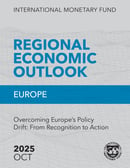This web page presents information about the work of the IMF in the Republic of Türkiye, including the activities of the IMF Resident Representative Office. Additional information can be found on the Republic of Türkiye and IMF country page, including IMF reports and Executive Board documents that deal with the Republic of Türkiye.
Our Office
At a Glance : Republic of Türkiye's Relations with the IMF
- Current IMF membership: 191 countries
- Date of Republic of Türkiye's membership: March 11, 1947
- Quota: SDR 4658.6 million (0.98 percent of total)
- The was discussed by the Executive Board on
- Recent Technical Assistance
Office Activities
IMF Statement on the Staff Visit
An IMF technical team will pay a routine visit to Türkiye at the end of September to hold discussions with the Turkish authorities in preparation for the Article IV Consultation. The visit would also be an opportunity to exchange views on recent economic developments, outlook, and macro financial policies. The IMF has received no indication from the Turkish authorities that they are contemplating a request for Fund financial assistance.
August 28, 2023
June 11, 2021
IMF Executive Board Concludes 2021 Article IV Consultation with Turkey
June 11, 2021
Turkey: Staff Concluding Statement of the 2021 Article IV Mission
January 25, 2021
IMF’s Work on the Republic of Türkiye
No results found. Either there was an error with the web service or there is no data returned by the web service.
IMF Key Factsheets
Regional Economic Outlook
October 17, 2025

Europe’s growth is slowing and debt rising. Closing the productivity gap with the US is firmly in Europe’s grasp. Discussions need to move from recognition to action: deepen integration, raise productivity and secure long-term fiscal sustainability.
Read the Report



